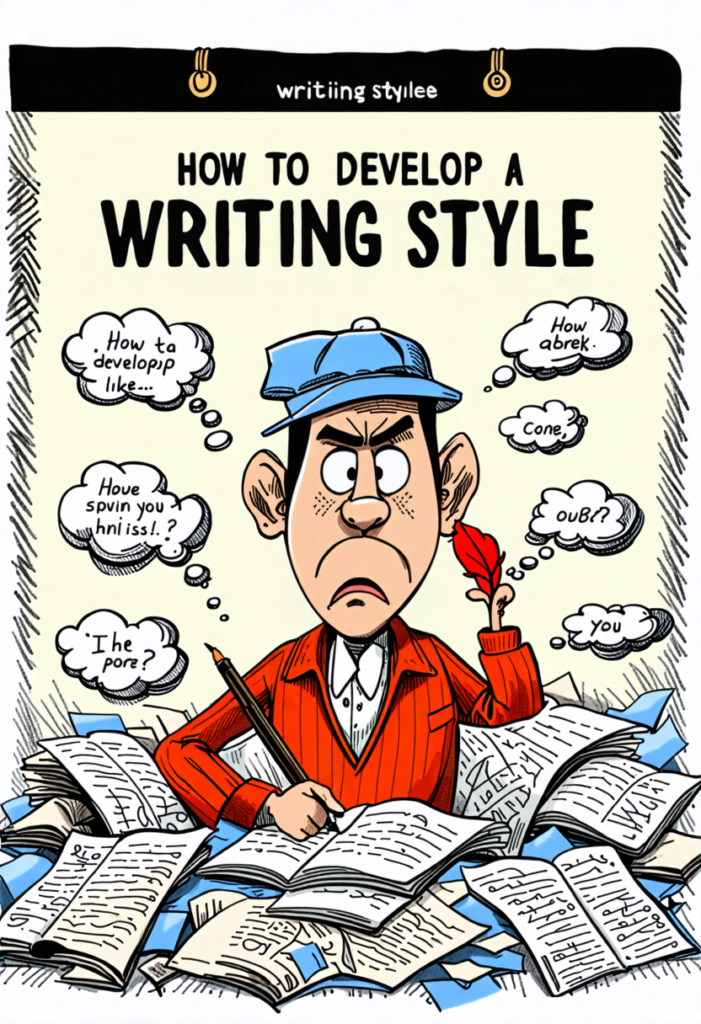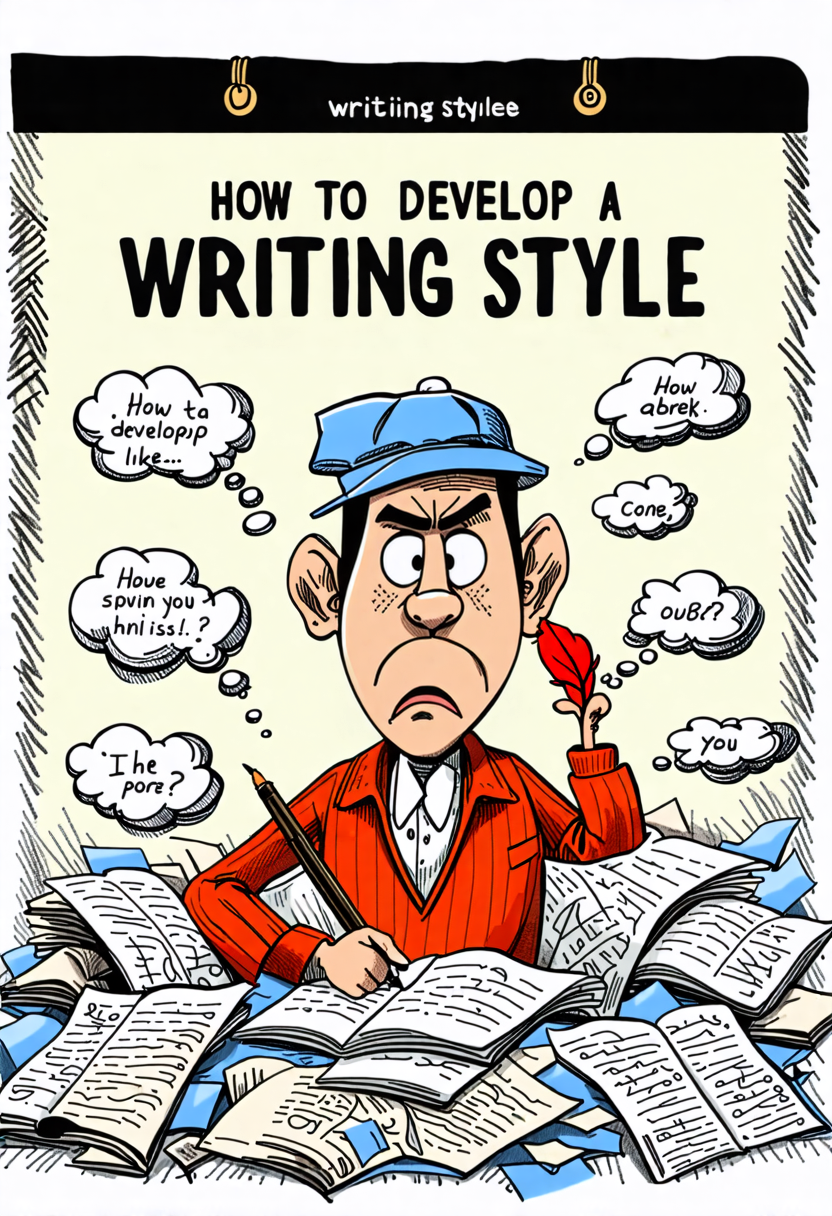What Is the Best Way to Develop a Writing Style?
To develop a writing style, review your past works to spot patterns. Notice your tone and word choices. Pay attention to sentence structure and punctuation. Seek feedback from friends or colleagues; their insights are invaluable. Hone your style by aiming for clarity and using simple words. Short sentences work best. Avoid jargon unless your audience knows it. Practice regularly and always aim to improve. Keeping these tips in mind will set you on the right path.
Identify Your Style
Reviewing your past writing can help you identify recurring patterns and unique traits in your style. Look at old chapters, articles, or even emails. Notice if you lean towards a quirky, casual, or formal tone. Pay attention to words or phrases you use often.
Do you use lots of parentheses or diverse punctuation? Are your sentences short and choppy? These traits define your writing style. Getting feedback from friends or colleagues can also be helpful. They might see patterns you don’t.
Identifying these elements is the first step in understanding your writing style. It helps you see what makes your writing unique and where you might need to refine or adjust your approach.
This self-awareness is essential for growth.
Recognize Your Patterns
Often, you’ll notice certain habits and patterns in your writing if you pay close attention. These might include recurring words, specific sentence structures, or even preferred punctuation marks.
By reviewing your old essays, articles, or even emails, you can identify these tendencies. Look for phrases you use frequently or any stylistic choices, like the use of parentheses or short sentences.
Recognizing these patterns helps you understand your natural writing style. Once you know your habits, you can decide which ones to keep and which to change. This awareness is the first step to refining your writing style and making it more effective.
Keep a log of your observations to track your progress over time.

Seek Constructive Feedback
Gaining insights from others can greatly enhance your writing style. Sharing your work with trusted friends or colleagues helps you see what you might miss. They can point out unclear parts, awkward phrasing, or repetitive words. Don’t shy away from constructive criticism; it’s a tool for growth.
Ask specific questions about your writing. For example, ‘Is my argument clear?’ or ‘Does my tone fit the topic?’ Pay attention to common feedback themes. If several people mention the same issue, you know it requires work.
Hone Your Style
To truly hone your writing style, focus on making your voice both unique and understandable. Use a thesaurus for precise word choices, but don’t pick overly complex words. They can confuse your readers.
Cut out phrases like ‘I think’ to sound more confident. Stick with the active voice; it makes your writing stronger and more direct. Align your style with the norms of your field while keeping your personal touch. This balance guarantees you stand out without losing clarity.
Practice regularly and pay attention to how your words flow. Over time, these steps will help you develop a distinct and effective writing style. Remember, your goal is clear, compelling communication.
Prioritize Clarity
Clarity in your writing guarantees that your message is easily understood. To achieve this, use simple words and short sentences. Avoid jargon unless your audience knows it well. Stick to the point and don’t wander off-topic.
Use active voice to make your writing direct and engaging. Read your work out loud to catch awkward phrases or confusing sentences. Ask yourself if each word serves a purpose. If it doesn’t, cut it out.
Organize your ideas logically, so your readers can follow along without getting lost. Break up long paragraphs to make your text more readable. Finally, proofread carefully to catch any errors that might obscure your meaning.
Clear writing makes a strong impact.
Adapt to Context
Adjusting your writing style to different contexts guarantees that your message resonates with your audience. First, think about who your readers are. If you’re writing a work memo, use short sentences and bullet points.
For emails, be casual unless the topic is serious. In academic papers, maintain formal language. Always tailor your writing to fit the format.
Be Concise
Being concise guarantees that your writing is clear and impactful. You can cut out unnecessary words, and your message won’t get lost. Use simple sentences and avoid filler words. When you’re concise, readers grasp your ideas quickly. Here’s a quick guide:
| Wordy Phrase | Concise Alternative | Benefit |
|---|---|---|
| Due to the fact that | Because | Shorter, clearer |
| At this point in time | Now | Saves time and space |
| In order to | To | Direct and straightforward |
Continuously Improve
To keep your writing sharp, you need to continuously improve your skills. Seek out new learning opportunities and stay open to feedback. Practice regularly to refine your style and stay consistent. Don’t be afraid to try new techniques and adapt your writing.
- Read Widely: Explore different genres and authors to see various styles.
- Seek Feedback: Ask friends, mentors, or peers for constructive criticism.
- Edit Ruthlessly: Review your work multiple times to spot and fix errors.
- Write Regularly: Make writing a habit to keep improving over time.








